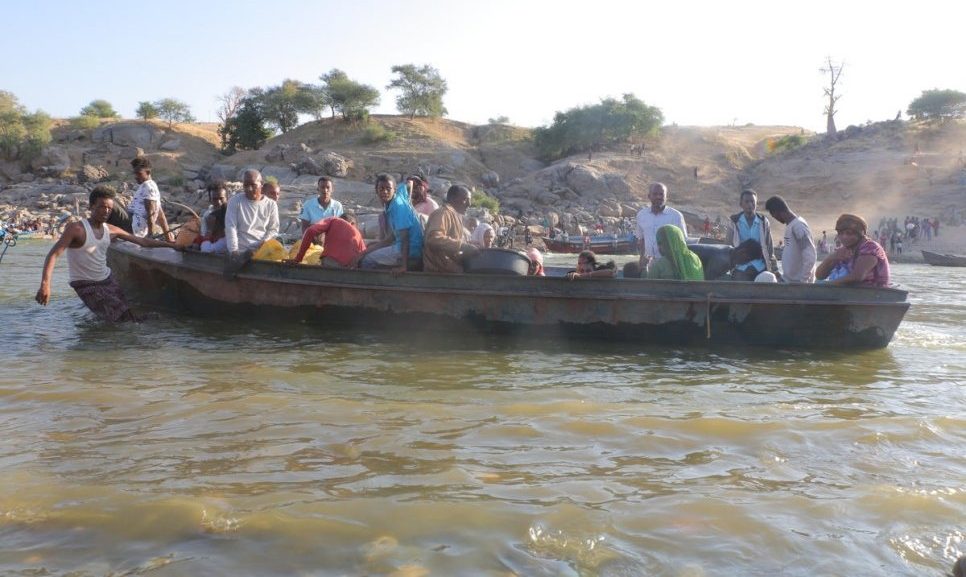Updates & Press
Country Featured | January 7, 2021
Overlooked and Underfunded: Sudan’s Multiple Cri
Author | MedGlobalComms

Cover Image: UNHCR/Hazim Elhag
By Andrew Moran, MedGlobal Policy & Advocacy Intern
COVID-19 vaccination campaigns have begun among the world’s richest countries after months of buying up the majority of promising vaccines. Of the two vaccines that have been approved, all of Moderna’s vaccines and 96% of Pfizer’s have been bought by wealthy countries, leaving few for low income countries battling the virus. Humanitarian organizations have warned that only 1 in 10 people across 67 low and lower-middle income countries, including Sudan, will have access to vaccines in 2021.
Continuing support for humanitarian efforts in these countries is critical as they will continue to battle the spread of COVID-19 for years to come. In Sudan, a country that has faced multiple health and humanitarian crises as it faces major political transitions, MedGlobal remains committed to ensuring access to health services among vulnerable populations. To date, we have provided over 86,000 items of PPE to local health workers in order to keep them and their patients safe. MedGlobal has also provided medical supplies and equipment to eight hospitals across six states and we are now working to build the first oxygen generator and oxygen filling station in Darfur. Sustainable access to concentrated oxygen is vital for a wide variety of life-saving medical treatments, including the ventilation of patients with COVID-19.
The work of MedGlobal and other humanitarian organizations in Sudan is increasingly important as needs in the country grow and local resources are stretched thin. At the start of 2020, an estimated 2.1 million people in Sudan were displaced, many due to Sudan’s two civil wars and the Darfur genocide. Mass displacements continued in 2020 due to violence by armed groups and record flooding across the country that destroyed over 110,000 homes, affected more than 875,000 people, and put 4.5 million at risk of vector-borne diseases. MedGlobal responded to the flooding by supporting 13 health facilities in managing the increase of flood-related diseases. The transitional government’s ability to respond to these crises has been severely hindered by a struggling economy and the outbreak of COVID-19 that has overwhelmed the fragile health system.
The latest crisis to affect Sudan is the growing humanitarian emergency caused by violence in Ethiopia’s Tigray region that has forced more than 56,000 Ethiopian refugees to flee into eastern Sudan. The refugee camps in Sudan are ill-equipped to meet the needs of the growing population, which the UN predicts will reach 115,000 by June 2021, and often lack basic necessities due to insufficient humanitarian aid. Overcrowding and limited access to sanitation and health services increases the risk that infectious diseases, including COVID-19, will spread among camp residents.
It is crucial for global health that low-income countries are not left behind or overlooked in 2021. Delaying vaccinations and failing to support humanitarian efforts in countries like Sudan as they battle multiple crises while supporting millions of displaced persons will not only exacerbate regional conditions, but also extend the pandemic. If nothing else, 2020 has shown that a health crisis in one region can ripple out and affect the rest of the world.


